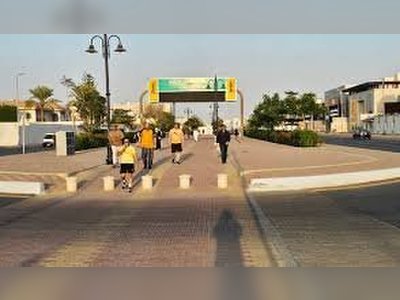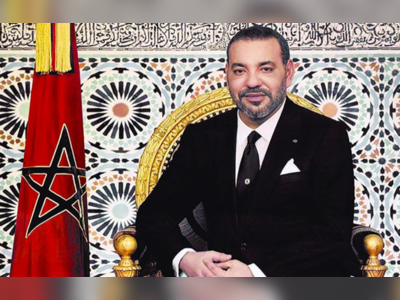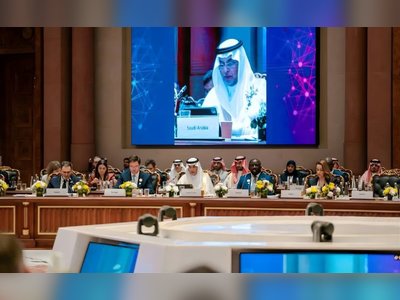
Saudi filmmaker Hamzah Jamjoom’s ‘Rupture’ puts women center stage
Born and raised in the coastal city of Jeddah, Jamjoom grew up surrounded by positive female influences, a safe environment, and lived a good life, in contradiction to how the West has viewed Saudis generally and portrayed Saudi women as being oppressed. To address these misconceptions, he has ventured into the world of cinema — specifically through his award-winning psychological thriller, “Rupture.”
Jamjoom directed the film, which won the Red Sea International Film Festival’s Best Saudi film category. He told Arab News that although Saudi Arabia has its own problems, he, like many, has lived in an otherwise peaceful and calm community.
“My mission in life is to clear misconceptions about Muslims, Arabs and Saudi Arabia. Every product I touch in my life, I have to do that. Personally, the film format is probably the most impactful tool to use in the current day to clear misconceptions.
“I grew up in a family that supported women. My sisters and mom make men look like nothing. I have very accomplished sisters, a very accomplished mother, and the boys in the family are barely catching up with them.”
While studying abroad, Jamjoom realized that Saudis were not exporting their stories enough, which prompted him to address certain taboos in the community, tackle social issues, and show the good, the ugly and the real issues regardless.
He decided to create movies with a genre and relay messages subtly as a means of normalizing Saudis to the outside world, specifically in global cinema.
Influenced by his faith, he said that Saudi, Arab and Muslim societies have always had storytelling tools.
“Rupture,” a complicated psychological thriller, tells the story of a pregnant Saudi woman who must distinguish reality from dreams and drug-induced delusions and perceptions of death, before a killer gets to her and her family. Her fractured life and memory are not the only things that stand in her way.
Each choice made for the film was carefully thought through, using “engineered methodology,” as Jamjoom calls it. “Everything is super structured, and I draw so many maps for all the characters.”
Selecting a Saudi female star was a choice the director made so “symbolically she can represent our society and our culture. Through her, we tapped into a lot of themes and hidden messages that we deal with.”
Jamjoom said that he “studies stories from the Qur’an and the Bible because they have stood the test of time because they are metaphorical.” He wanted to come up with a story with deep, profound and multiple layers that engages thoughts, emotions and the spirit and leaves the audience wanting to know more.
“Just like any art piece, you make the art and let the people try to figure it out. I respect the intelligence of the viewer, I don’t want to dumb it down,” he said.











